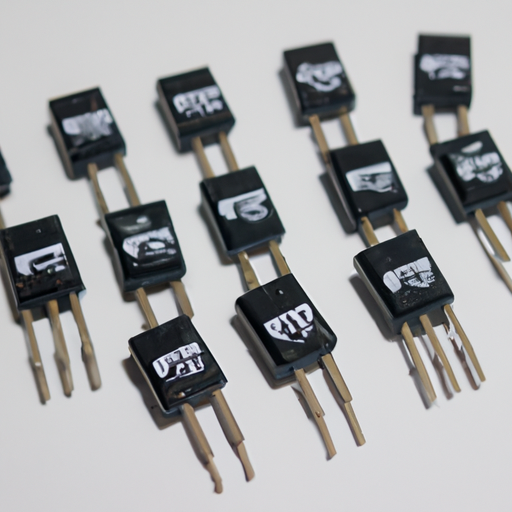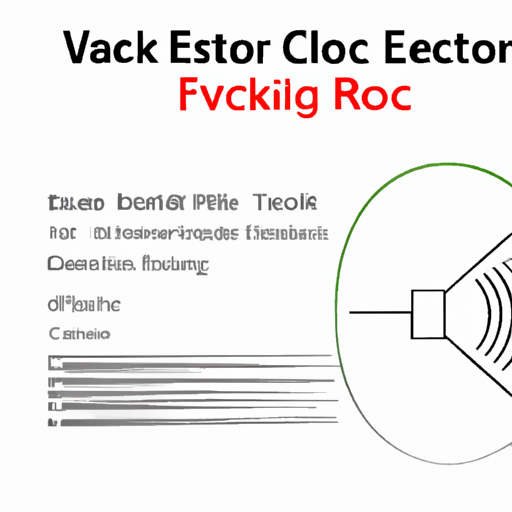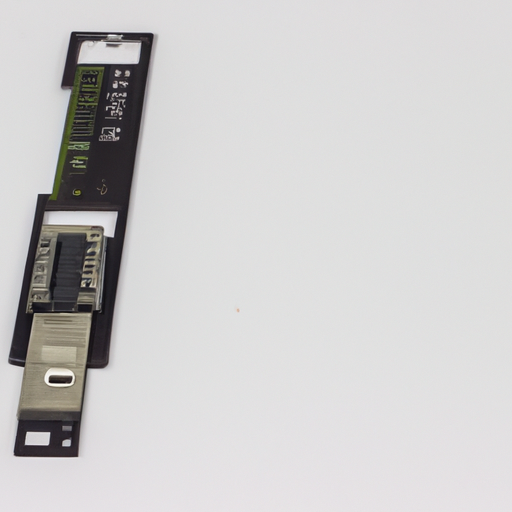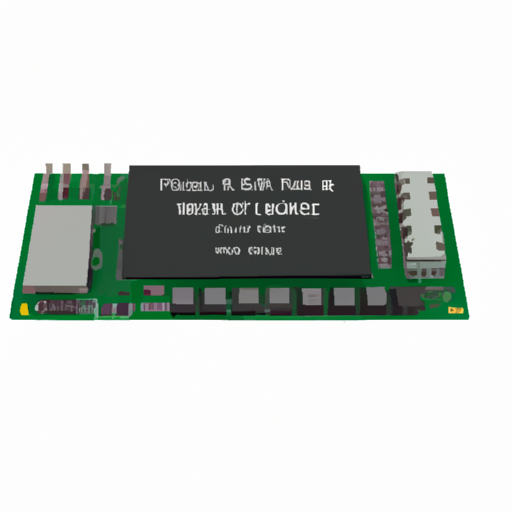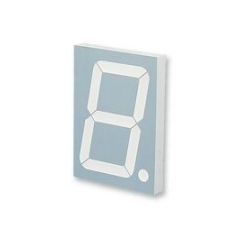What is the price of popular fixed resistor models in stock?
What is the Price of Popular Fixed Resistor Models in Stock?
I. Introduction
In the world of electronics, fixed resistors play a crucial role in controlling the flow of electric current. These components are essential for a variety of applications, from simple circuits to complex devices. This article aims to explore the prices of popular fixed resistor models currently in stock, providing insights into their specifications, factors influencing their prices, and where to purchase them.
II. Understanding Fixed Resistors
A. What are Fixed Resistors?
Fixed resistors are passive electronic components that provide a specific resistance value in a circuit. Unlike variable resistors, which can be adjusted, fixed resistors maintain a constant resistance. They are used to limit current, divide voltages, and set biasing conditions in electronic circuits.
1. Definition and Function
The primary function of a fixed resistor is to impede the flow of electric current, thereby controlling the voltage and current levels in a circuit. This is essential for protecting sensitive components and ensuring the proper operation of electronic devices.
2. Types of Fixed Resistors
There are several types of fixed resistors, each with unique characteristics:
Carbon Film Resistors: Made from a thin layer of carbon, these resistors are cost-effective and widely used in general applications.
Metal Film Resistors: Known for their precision and stability, metal film resistors are often used in applications requiring high accuracy.
Wirewound Resistors: Constructed by winding a metal wire around a ceramic or fiberglass core, these resistors can handle high power ratings and are used in high-performance applications.
High-Precision Resistors: These resistors offer tight tolerances and are used in applications where accuracy is critical.
B. Key Specifications to Consider
When selecting fixed resistors, several key specifications should be considered:
1. Resistance Value (Ohms)
The resistance value, measured in ohms (Ω), determines how much current will flow through the resistor when a voltage is applied. Common values range from a few ohms to several megaohms.
2. Power Rating (Watts)
The power rating indicates the maximum amount of power the resistor can dissipate without overheating. It is crucial to choose a resistor with an appropriate power rating for the application to prevent failure.
3. Tolerance
Tolerance refers to the allowable deviation from the specified resistance value. It is expressed as a percentage and indicates the precision of the resistor. For example, a 1% tolerance means the actual resistance can vary by 1% from the stated value.
4. Temperature Coefficient
The temperature coefficient indicates how much the resistance value changes with temperature. A lower temperature coefficient is preferable for applications requiring stability across varying temperatures.
III. Factors Influencing Resistor Prices
Several factors influence the prices of fixed resistors:
A. Material Composition
The material used in the construction of the resistor significantly affects its price. Carbon resistors are generally cheaper than metal film or wirewound resistors due to the cost of materials and manufacturing processes.
B. Manufacturing Processes
The method of production can also impact pricing. Automated manufacturing processes tend to lower costs, while manual production may result in higher prices due to labor costs.
C. Brand Reputation
Well-known brands often charge a premium for their products due to perceived quality and reliability. Consumers may be willing to pay more for trusted brands, especially in critical applications.
D. Market Demand and Supply Dynamics
Prices can fluctuate based on market demand and supply. For instance, during periods of high demand or supply chain disruptions, prices may increase.
E. Distribution Channels
The choice of distribution channel can also affect pricing. Online retailers may offer competitive prices due to lower overhead costs, while local electronics stores may have higher prices due to additional expenses.
IV. Popular Fixed Resistor Models
A. Overview of Commonly Used Models
Here are some of the most popular fixed resistor models:
1. 1/4 Watt Carbon Film Resistors
These resistors are widely used in general-purpose applications due to their affordability and availability.
2. 1/4 Watt Metal Film Resistors
Known for their precision, these resistors are ideal for applications requiring accurate resistance values.
3. Wirewound Resistors
These resistors are suitable for high-power applications and are often used in power supplies and amplifiers.
4. High-Precision Resistors
These resistors are designed for applications where accuracy is paramount, such as in measurement and calibration equipment.
B. Price Ranges for Each Model
The following are approximate price ranges for popular fixed resistor models:
1. 1/4 Watt Carbon Film Resistors
- Price Range: $0.01 - $0.10 per unit
2. 1/4 Watt Metal Film Resistors
- Price Range: $0.05 - $0.20 per unit
3. Wirewound Resistors
- Price Range: $0.10 - $1.00 per unit, depending on power rating
4. High-Precision Resistors
- Price Range: $0.50 - $5.00 per unit, depending on specifications
V. Where to Buy Fixed Resistors
A. Online Retailers
Several online platforms offer a wide selection of fixed resistors:
1. Amazon
Amazon provides a vast array of electronic components, including fixed resistors, often with competitive pricing and fast shipping options.
2. Digi-Key
Digi-Key is a well-known distributor of electronic components, offering a comprehensive selection of resistors with detailed specifications.
3. Mouser Electronics
Mouser is another reputable distributor that provides a wide range of fixed resistors, along with datasheets and technical support.
4. eBay
eBay can be a source for bulk purchases or hard-to-find resistor models, often at lower prices.
B. Local Electronics Stores
Local electronics stores may carry a selection of fixed resistors, allowing for immediate purchase without shipping delays.
C. Wholesale Suppliers
For bulk purchases, wholesale suppliers can offer significant discounts, making them an attractive option for businesses and hobbyists alike.
D. Comparison of Prices Across Different Platforms
When purchasing fixed resistors, it is advisable to compare prices across different platforms to ensure the best deal. Online tools and price comparison websites can assist in finding the most competitive prices.
VI. Case Studies: Price Comparisons
A. Example 1: Price Comparison of 1/4 Watt Carbon Film Resistors
Amazon: $0.05 per unit
Digi-Key: $0.03 per unit
Mouser Electronics: $0.04 per unit
B. Example 2: Price Comparison of 1/4 Watt Metal Film Resistors
Amazon: $0.15 per unit
Digi-Key: $0.10 per unit
Mouser Electronics: $0.12 per unit
C. Example 3: Price Comparison of Wirewound Resistors
Amazon: $0.50 per unit
Digi-Key: $0.40 per unit
Mouser Electronics: $0.45 per unit
D. Example 4: Price Comparison of High-Precision Resistors
Amazon: $2.00 per unit
Digi-Key: $1.80 per unit
Mouser Electronics: $1.90 per unit
VII. Conclusion
In summary, fixed resistors are essential components in electronic circuits, and understanding their pricing is crucial for making informed purchasing decisions. The prices of popular fixed resistor models vary based on factors such as material composition, manufacturing processes, and market dynamics. By comparing prices across different platforms and considering key specifications, consumers can select the right resistors for their applications.
As technology continues to evolve, the demand for high-quality fixed resistors is likely to grow, potentially impacting their pricing and availability in the future. Whether for hobbyist projects or professional applications, being informed about fixed resistor options will help ensure successful electronic designs.
VIII. References
- Electronic Component Distributors: Digi-Key, Mouser Electronics, Amazon
- Technical specifications and datasheets from manufacturer websites
- Industry publications on electronic components and pricing trends
This comprehensive guide aims to equip readers with the knowledge needed to navigate the world of fixed resistors, ensuring they can make informed choices for their electronic projects.

